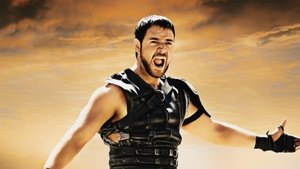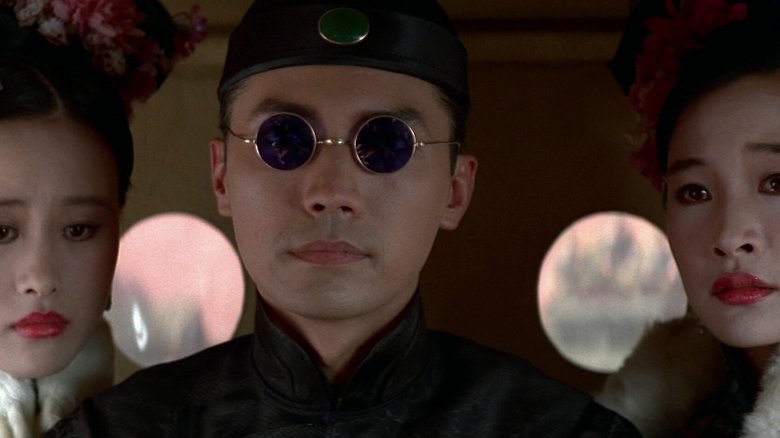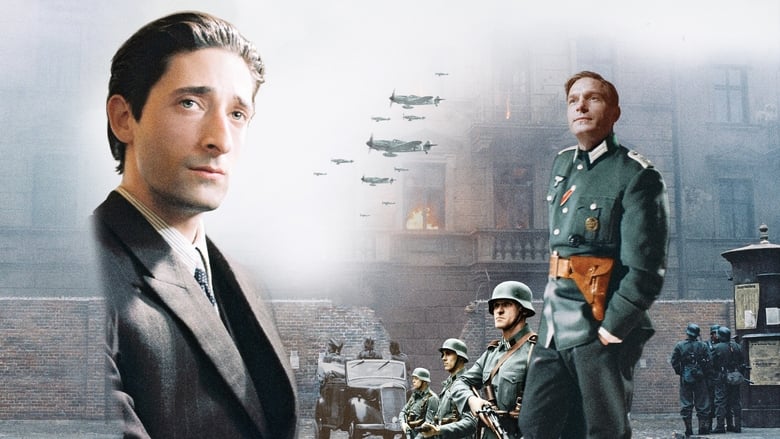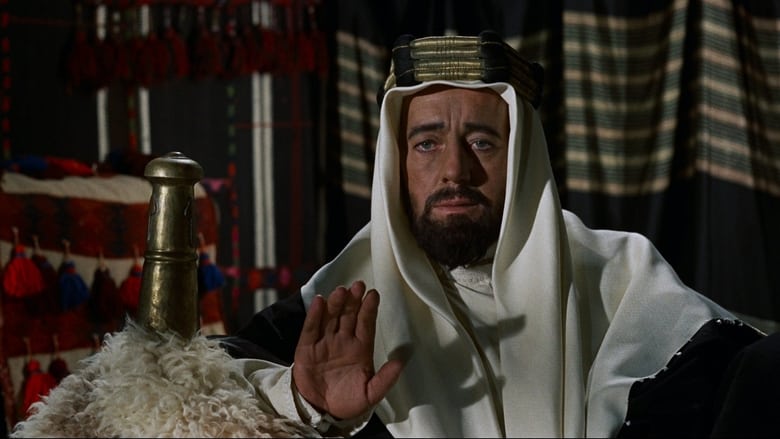Best historical movies worth watching
Journey through time with some of the most acclaimed historical films ever made. These movies offer captivating glimpses into significant moments and figures from the past.



Historical films hold a unique power, transporting us across centuries to witness pivotal events and meet legendary figures. They offer not just entertainment, but also a window into the human experience across different eras, from ancient empires to more recent conflicts and social shifts.
Crafting a compelling historical movie is a delicate balance between dramatic storytelling and factual accuracy. Filmmakers often face the challenge of bringing dusty textbook pages to life, requiring meticulous research into costumes, settings, language, and customs. The best examples manage to capture the spirit and complexity of an era, sometimes shedding light on lesser-known stories or providing new perspectives on familiar ones.
Consider the grand scale of epics like Lawrence of Arabia, which redefined cinematic scope, or the intense personal dramas such as Schindler's List or The Pianist, which confront the profound human cost of historical atrocities. Films like Amadeus offer fascinating (though sometimes debated) insights into artistic genius, while others, like The Great Escape, highlight incredible feats of courage and endurance during wartime. This genre allows us to reflect on how the past shapes our present and to empathize with the struggles and triumphs of those who came before us.
14. The Great Escape (1963)
John Sturges' "The Great Escape" is a thrilling war film based on the true story of Allied prisoners of war who planned a mass escape from a German POW camp during World War II. Featuring an ensemble cast including Steve McQueen, James Garner, and Richard Attenborough, the film balances suspenseful escape preparations with moments of camaraderie and ingenuity. The iconic motorcycle chase scene, performed by Steve McQueen himself (mostly, with a stunt double for the jump), is one of cinema's most famous sequences. While dramatized for the screen, the film captures the spirit of resistance and the determination of the real prisoners. It's a classic adventure story that celebrates courage and resilience in the face of adversity.

13. The Bridge on the River Kwai (1957)
David Lean's classic war film "The Bridge on the River Kwai" is set during World War II and focuses on British prisoners of war in a Japanese camp in Burma forced to build a railway bridge. It explores themes of duty, honor, and the absurdity of war through the conflict between a rigid British colonel (Alec Guinness, in an Oscar-winning role) who insists on military discipline even in captivity, and the pragmatic Japanese camp commander (Sessue Hayakawa). The construction of the bridge itself becomes a central character. Famous for its whistle tune, the 'Colonel Bogey March', the film won seven Academy Awards, including Best Picture, and remains a powerful and complex examination of human behavior under extreme duress.

12. Lincoln (2012)
Steven Spielberg's "Lincoln" offers a detailed and focused look at the final months of Abraham Lincoln's life, centering on his efforts to pass the Thirteenth Amendment to the U.S. Constitution, which abolished slavery. Daniel Day-Lewis gives an absolutely masterful, Oscar-winning performance as the 16th president, disappearing into the role with remarkable authenticity. The film is less a sprawling biography and more a political procedural, delving into the intricate legislative maneuvering and moral arguments involved in this pivotal historical moment. Tony Kushner's screenplay is rich with period dialogue and political insight. While perhaps less action-packed than other historical epics, it provides a compelling and humanizing portrait of a leader navigating immense challenges during a nation's defining crisis.

11. The Imitation Game (2014)
Morten Tyldum's "The Imitation Game" brings the fascinating and tragic story of Alan Turing to the screen. Benedict Cumberbatch delivers a captivating performance as the brilliant British mathematician and logician who led the team that cracked the seemingly unbreakable Enigma code during World War II. The film intertwines the high-stakes code-breaking effort at Bletchley Park with Turing's personal struggles and the persecution he faced for his homosexuality. It highlights the immense, yet often overlooked, contribution of Turing and his team to the Allied victory. The film was nominated for eight Academy Awards, winning for Best Adapted Screenplay, shedding light on a crucial historical event and the complex, unjustly treated man behind it.

10. The King's Speech (2010)
Tom Hooper's "The King's Speech" tells the compelling true story of King George VI, who reluctantly ascended the British throne and struggled with a severe stammer. Colin Firth won an Academy Award for his nuanced portrayal of the stuttering monarch, finding an unlikely ally and speech therapist in Lionel Logue, played with warmth and wit by Geoffrey Rush. The film is an intimate character study set against the backdrop of looming war, highlighting the pressure on the King to inspire his nation through public speaking. It's a feel-good historical drama that resonates due to the genuine chemistry between its leads and its focus on overcoming personal challenges. The film won four Academy Awards, including Best Picture, charming audiences with its heartfelt story and strong performances.

9. The Last Emperor (1987)
Bernardo Bertolucci's "The Last Emperor" is a visually stunning and epic biography of Puyi, the final emperor of China, from his coronation as a child to his life as an ordinary citizen under Communist rule. It was the first Western film granted permission to film inside the Forbidden City, lending it unparalleled authenticity and scale. The film covers a vast sweep of Chinese history through the lens of one man's extraordinary life, marked by political upheaval and personal transformation. It won a remarkable nine Academy Awards, including Best Picture and Best Director, celebrated for its breathtaking cinematography, lavish production design, and sweeping narrative. The score by Ryuichi Sakamoto, David Byrne, and Cong Su is a beautiful fusion of Eastern and Western influences.

8. 12 Years a Slave (2013)
Steve McQueen's "12 Years a Slave" is a stark and unflinching portrayal of slavery in the United States, based on the true story of Solomon Northup, a free Black man kidnapped and sold into bondage. Chiwetel Ejiofor delivers a powerful performance as Northup, guiding the audience through the brutal realities of his twelve years in captivity. The film is renowned for its historical accuracy and raw emotional intensity, refusing to shy away from the horrors of the slave system. Lupita Nyong'o won an Academy Award for her devastating portrayal of Patsey. The film won three Academy Awards, including Best Picture, and is considered a vital and necessary cinematic examination of a dark chapter in American history, demanding witness to the dehumanization and suffering endured by millions.

7. The Pianist (2002)
Roman Polanski's "The Pianist" is a harrowing and deeply personal account of survival during the Holocaust, based on the autobiography of Polish-Jewish musician Władysław Szpilman. Adrien Brody gives a compelling, Oscar-winning performance as Szpilman, depicting his desperate struggle to survive in the ruins of the Warsaw Ghetto. The film is unflinching in its depiction of the brutality and devastation of the war, yet it also finds moments of resilience and the enduring power of art, particularly through Szpilman's connection to music. Polanski, himself a Holocaust survivor, brings a raw authenticity to the film. It won three Academy Awards, including Best Director and Best Actor, serving as a powerful testament to the strength of the human spirit in the face of unimaginable horror.

6. Gandhi (1982)
Richard Attenborough's biographical epic "Gandhi" chronicles the life of Mohandas K. Gandhi, the leader of India's nonviolent independence movement. Ben Kingsley delivers a transformative, Oscar-winning performance as Gandhi, portraying his journey from a young lawyer in South Africa to the revered Mahatma. The film is ambitious in scale, covering over 50 years of history and featuring massive crowd scenes, including a recreation of Gandhi's funeral procession involving hundreds of thousands of extras – a Guinness World Record at the time. It's a film that highlights the power of peaceful resistance and civil disobedience in achieving monumental change. "Gandhi" won eight Academy Awards, including Best Picture and Best Director, and remains a powerful and inspiring portrait of one of history's most influential figures.

5. Amadeus (1984)
Milos Forman's "Amadeus" presents a fascinating, albeit fictionalized, rivalry between Wolfgang Amadeus Mozart and Antonio Salieri in 18th-century Vienna. Based on Peter Shaffer's play, the film is a visual and auditory feast, bringing the opulence of the era to life while showcasing Mozart's incredible musical genius and eccentric personality through Tom Hulce's energetic performance. F. Murray Abraham won an Oscar for his portrayal of the envious Salieri, who serves as the film's narrator and antagonist. The film uses Mozart's actual compositions extensively, allowing his magnificent music to be a central character. "Amadeus" swept the 1985 Academy Awards, winning eight Oscars, including Best Picture, solidifying its place as a brilliant exploration of genius, envy, and the nature of artistic legacy.

4. Braveheart (1995)
Mel Gibson directed and starred in "Braveheart," the epic portrayal of Scottish hero William Wallace's rebellion against English rule in the late 13th century. Known for its stirring battle sequences and Gibson's passionate performance, the film captured the imagination of audiences worldwide. While it takes significant historical liberties – the kilt, for instance, wasn't worn during Wallace's time – it excels as a compelling narrative about freedom and resistance. The film's impact on popular culture, particularly in Scotland, is undeniable. It won five Academy Awards, including Best Picture and Best Director, cementing its status as a modern epic, driven by a powerful score from James Horner that perfectly underscores the film's emotional highs and lows.

3. Gladiator (2000)
Ridley Scott's "Gladiator" resurrected the historical epic for a new generation with its visceral action and compelling story of revenge and honor in ancient Rome. Russell Crowe delivers a powerful, Oscar-winning performance as Maximus Decimus Meridius, the betrayed Roman general turned gladiator seeking vengeance against the corrupt Emperor Commodus, played with chilling intensity by Joaquin Phoenix. The film is celebrated for its stunning production design, detailed costumes, and thrilling, if sometimes brutal, combat sequences. While taking some creative liberties with historical accuracy for dramatic effect, it successfully captures the grandeur and brutality of the Roman Empire. The score by Hans Zimmer and Lisa Gerrard is incredibly atmospheric and instantly iconic, perfectly complementing the film's emotional weight and epic scale. "Gladiator" won five Academy Awards, including Best Picture, and remains a thrilling and emotionally resonant journey into the past.

2. Lawrence of Arabia (1962)
David Lean's epic "Lawrence of Arabia" is a sweeping cinematic spectacle that remains unparalleled in its scale and ambition. Telling the story of T.E. Lawrence, the eccentric British officer who united Arab tribes during World War I, the film is renowned for its breathtaking cinematography of the vast desert landscapes, captured in stunning 70mm by Freddie Young. Peter O'Toole, in his breakout role, is utterly captivating as Lawrence, portraying the complex and often contradictory nature of the historical figure. The film's production was famously challenging, involving thousands of extras and shooting in remote locations, contributing to its legendary status. Winning seven Academy Awards, including Best Picture, it's a film that demands to be seen on the largest screen possible to fully appreciate its grandeur and the intricate exploration of identity, loyalty, and the clash of cultures. Maurice Jarre's iconic score is instantly recognizable and perfectly complements the film's epic scope.

1. Schindler's List (1993)
Steven Spielberg's profound masterpiece, "Schindler's List," is a cinematic achievement that captures the horrific reality of the Holocaust through the unlikely story of Oskar Schindler. Filmed mostly in black and white, a deliberate choice to evoke historical footage and underscore the bleakness of the era, the film features a single, striking splash of color – a young girl in a red coat – which serves as a powerful symbol of lost innocence and the human lives behind the statistics. Liam Neeson delivers a nuanced performance as Schindler, the German businessman who ultimately saves over a thousand Polish-Jewish refugees by employing them in his factories. The film won seven Academy Awards, including Best Picture and Best Director, solidifying its place as essential, albeit difficult, viewing that reminds us of the importance of compassion and resistance in the face of unimaginable evil. John Williams' haunting score is also particularly noteworthy, adding another layer of emotional depth to this powerful historical account.

